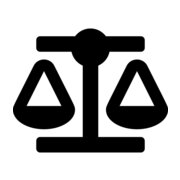Best Arrests & Searches Lawyers in Fribourg
Share your needs with us, get contacted by law firms.
Free. Takes 2 min.
List of the best lawyers in Fribourg, Switzerland
About Arrests & Searches Law in Fribourg, Switzerland
Arrests and searches in Fribourg, Switzerland, are governed primarily by federal Swiss law, particularly the Swiss Criminal Procedure Code (CCP), with specific practices applied locally. The system aims to balance effective law enforcement with strong protections for personal freedoms and privacy. Law enforcement officers must generally act within clear legal boundaries and uphold the rights of anyone suspected or accused of a crime. Understanding the requirements and limitations that police must follow is essential if you or someone you know faces a search or arrest situation in Fribourg.
Why You May Need a Lawyer
Legal advice is crucial if you are involved in an arrest or search, whether as a suspect, witness, or even as a property owner. Here are some common situations where the assistance of a lawyer may be necessary:
- If you have been detained or arrested by the police.
- If your home, vehicle, or workplace has been searched by authorities.
- If evidence has been seized during a search.
- If you believe your rights have been violated during police procedures.
- If you are asked to attend a police interview or provide a statement under caution.
- If you are not fluent in French or German, local legal languages, and need help understanding documents or police instructions.
- If you are involved as a juvenile, since special rules can apply for minors.
- If you have been charged with a criminal offense and need representation in court.
- If you wish to lodge a complaint against police conduct or procedural irregularities.
A lawyer can help protect your rights, ensure fair treatment, and guide you through the complexities of the Swiss legal system.
Local Laws Overview
In Fribourg, as in the rest of Switzerland, arrests and searches are strictly regulated. Here are some key aspects:
- Arrest Powers: Police can arrest a person if they have sufficient grounds to suspect involvement in a crime, especially if there is risk of flight, collusion, or evidence tampering.
- Warrants: Generally, a warrant is required for searches of residences and private premises, except in certain emergency situations.
- Right to Information: Anyone arrested or searched must be informed promptly of the reason and of their rights, including the right to a lawyer and the right to remain silent.
- Legal Representation: Detainees have the right to consult with legal counsel and to have counsel present during police questioning.
- Detention Time Limits: Individuals may be held in police custody only for a limited period before seeing a judge, usually within 24 to 48 hours.
- Search Protocols: Searches must be conducted respectfully, and any property seized must be logged and, if necessary, returned if not relevant to the investigation.
- Minor and Vulnerable Persons: Special protections apply to minors and vulnerable individuals, such as requiring the presence of a guardian or legal representative.
Fribourg's police authorities are required to adhere not only to the federal Code but also to cantonal procedural rules, ensuring both uniformity and sensitivity to local norms.
Frequently Asked Questions
What happens if I am arrested in Fribourg?
If you are arrested, the police must inform you of the reasons for your detention and your legal rights, including the possibility to contact a lawyer. You will be taken to a police station for further processing and may be questioned.
Do police always need a warrant to search my home?
Generally, yes, a warrant is required to search a residence. However, exceptions exist in urgent cases such as when there is imminent danger or risk of destruction of evidence.
Can I refuse to answer questions without a lawyer?
Yes, you have the right to remain silent and the right to consult a lawyer before answering any police questions.
How long can I be detained without seeing a judge?
Police detention generally cannot exceed 24 to 48 hours without judicial oversight. After this period, you must be brought before a judge for further decisions.
What should I do if police search my vehicle?
Stay calm, cooperate respectfully, and ask to see the search authorization if available. If no warrant is presented, police must have a valid legal reason for the search, such as probable cause in an ongoing investigation.
Can police search my mobile phone during a search?
Yes, under certain conditions, police can search electronic devices if they believe they contain evidence relevant to a crime. A warrant is typically necessary unless there are exigent circumstances.
What are my rights if I am a minor or a guardian of a minor?
Minors are afforded extra protections. Police must notify a parent or guardian, and questioning must generally take place in their presence.
Can I make a complaint about police conduct during an arrest or search?
Yes, you have the right to file a complaint against improper police behavior or procedural violations. Your lawyer can assist with this process.
Is legal aid available in Fribourg?
Legal aid (Assistance judiciaire) is available for those who cannot afford legal representation. You can apply through the local judicial authorities.
What languages are used in police procedures in Fribourg?
Procedures are typically conducted in French, the main local language, or German in certain areas. If you do not understand the language, translation must be provided.
Additional Resources
If you require further assistance or detailed information, the following resources and organizations can be helpful:
- Fribourg Police (Police cantonale fribourgeoise): For information on police procedures and complaints.
- Fribourg Judicial Authorities: For help with legal processes, detention, and court proceedings.
- Legal Aid Offices (Bureau d'assistance judiciaire): For those seeking free or subsidized legal representation.
- Swiss Bar Association: To find qualified legal professionals in the field of criminal law.
- Swiss Federal Office of Justice: For federal legal guidelines and citizens' rights information.
- Local advocacy groups for civil rights and migrant support.
Next Steps
If you or a loved one have been arrested or subject to a search in Fribourg, it is important to:
- Stay calm and cooperate respectfully with authorities.
- Assert your right to remain silent until you consult a lawyer.
- Contact a qualified lawyer experienced in criminal law as soon as possible.
- Request information in a language you understand if needed.
- Apply for legal aid if you face financial hardship.
- Document any details of the arrest or search for your legal counsel.
- Seek support from trusted friends, family, or advocacy organizations.
Timely legal advice makes a significant difference. Do not hesitate to reach out to a professional if you have any concerns about your situation or your rights under Swiss law.
Lawzana helps you find the best lawyers and law firms in Fribourg through a curated and pre-screened list of qualified legal professionals. Our platform offers rankings and detailed profiles of attorneys and law firms, allowing you to compare based on practice areas, including Arrests & Searches, experience, and client feedback.
Each profile includes a description of the firm's areas of practice, client reviews, team members and partners, year of establishment, spoken languages, office locations, contact information, social media presence, and any published articles or resources. Most firms on our platform speak English and are experienced in both local and international legal matters.
Get a quote from top-rated law firms in Fribourg, Switzerland — quickly, securely, and without unnecessary hassle.
Disclaimer:
The information provided on this page is for general informational purposes only and does not constitute legal advice. While we strive to ensure the accuracy and relevance of the content, legal information may change over time, and interpretations of the law can vary. You should always consult with a qualified legal professional for advice specific to your situation.
We disclaim all liability for actions taken or not taken based on the content of this page. If you believe any information is incorrect or outdated, please contact us, and we will review and update it where appropriate.









